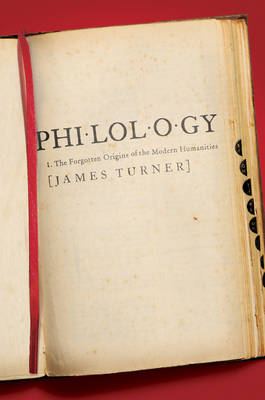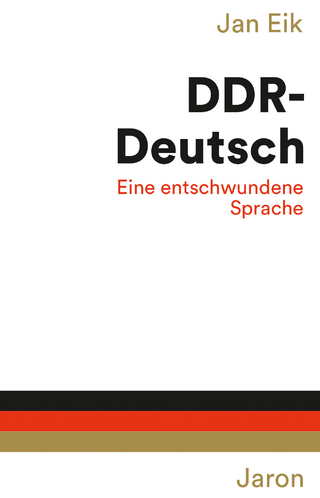
Philology
Princeton University Press (Verlag)
978-0-691-14564-8 (ISBN)
- Titel ist leider vergriffen;
keine Neuauflage - Artikel merken
Many today do not recognize the word, but "philology" was for centuries nearly synonymous with humanistic intellectual life, encompassing not only the study of Greek and Roman literature and the Bible but also all other studies of language and literature, as well as history, culture, art, and more. In short, philology was the queen of the human sciences. How did it become little more than an archaic word? In Philology, the first history of Western humanistic learning as a connected whole ever published in English, James Turner tells the fascinating, forgotten story of how the study of languages and texts led to the modern humanities and the modern university. The humanities today face a crisis of relevance, if not of meaning and purpose. Understanding their common origins--and what they still share--has never been more urgent.
James Turner is the Cavanaugh Professor of Humanities Emeritus at the University of Notre Dame, where he taught in the History Department and the doctoral program in history and philosophy of science.
Prologue ix Conventions xix Acknowledgments xxiii PART I. FROM THE FIRST PHILOLOGISTS TO 1800 1 1. "Cloistered Bookworms, Quarreling Endlessly in the Muses' Bird-Cage": From Greek Antiquity to circa 1400 3 2. "A Complete Mastery of Antiquity": Renaissance, Reformation, and Beyond 33 3. "A Voracious and Undistinguishing Appetite": British Philology to the Mid-Eighteenth Century 65 4. "Deep Erudition Ingeniously Applied": Revolutions of the Later Eighteenth Century 91 PART II. ON THE BRINK OF THE MODERN HUMANITIES, 1800 TO THE MID-NINETEENTH CENTURY 123 5. "The Similarity of Structure Which Pervades All Languages": From Philology to Linguistics, 1800-1850 125 6. "Genuinely National Poetry and Prose": Literary Philology and Literary Studies, 1800-1860 147 7. "An Epoch in Historical Science": The Civilized Past, 1800-1850 167 I. Altertumswissenschaft and Classical Studies 168 II. Archaeology 184 III. History 197 8. "Grammatical and Exegetical Tact": Biblical Philology and Its Others, 1800-1860 210 PART III. THE MODERN HUMANITIES IN THE MODERN UNIVERSITY, THE MID-NINETEENTH TO THE TWENTIETH CENTURY 231 9. "This Newly Opened Mine of Scientific Inquiry": Between History and Nature: Linguistics after 1850 236 10. "Painstaking Research Quite Equal to Mathematical Physics": Literature, 1860-1920 254 11. "No Tendency toward Dilettantism": The Civilized Past after 1850 274 I. 'Classics' Becomes a Discipline 275 II. History 299 III. Art History 310 12. "The Field Naturalists of Human Nature": Anthropology Congeals into a Discipline, 1840-1910 328 13. "The Highest and Most Engaging of the Manifestations of Human Nature": Biblical Philology and the Rise of Religious Studies after 1860 357 I. The Fate of Biblical Philology 357 II. The Rise of Comparative Religious Studies 368 Epilogue 381 Notes 387 Works Cited 453 Index 509
| Erscheint lt. Verlag | 4.5.2014 |
|---|---|
| Reihe/Serie | The William G. Bowen Series |
| Verlagsort | New Jersey |
| Sprache | englisch |
| Maße | 152 x 235 mm |
| Gewicht | 907 g |
| Themenwelt | Geisteswissenschaften ► Geschichte |
| Sozialwissenschaften | |
| ISBN-10 | 0-691-14564-4 / 0691145644 |
| ISBN-13 | 978-0-691-14564-8 / 9780691145648 |
| Zustand | Neuware |
| Haben Sie eine Frage zum Produkt? |
aus dem Bereich


